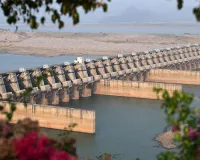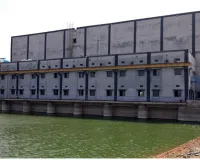Modi Govt plans to introduce ‘One Nation, One Election’ Bill in winter session
• JPC to build consensus • Bill to be discussed at Cabinet meeting on Wednesday
On

In a significant development ahead of the 2024 general elections, the Union Cabinet is set to meet in New Delhi
In a significant development ahead of the 2024 general elections, the Union Cabinet is set to meet in New Delhi on Wednesday under the leadership of Prime Minister Narendra Modi to deliberate on the much-anticipated ‘One Nation, One Election’ Bill.
The Bill, aimed at synchronizing the elections for the Lok Sabha and state assemblies, marks a bold move by the Modi government, with the Prime Minister keen on holding simultaneous elections across the nation.
The government is reportedly preparing to introduce the ‘One Nation, One Election’ Bill during the ongoing Winter session of Parliament, with Cabinet approval already secured. The Bill is the result of a detailed report prepared by a committee led by former President Ram Nath Kovind, which extensively examined the feasibility and benefits of conducting simultaneous elections.
Sources within the government have indicated that the Bill will be referred to a Joint Parliamentary Committee (JPC) to ensure that all aspects are thoroughly discussed and that a wide-ranging consensus is built. The JPC, consisting of representatives from all political parties, is expected to engage in detailed deliberations regarding the bill's potential impact and the logistics of executing simultaneous elections. Additionally, the government is keen on including a broad spectrum of stakeholders in the discussions. It is anticipated that speakers from state assemblies, intellectuals, experts, and civil society representatives will be invited to share their views.
The government's goal is to foster inclusivity and transparency, ensuring that the process reflects the views of the general public. As part of these discussions, the Bill’s advantages, including reduced election-related costs and a more synchronized political process, will be weighed against the challenges involved in its implementation. One of the significant hurdles to the bill’s passage is the need for a constitutional amendment. The Bill would require approval from at least 67 percent of members in both the Lok Sabha and Rajya Sabha, as well as 50 percent of state legislatures.
Given the complexities of the required amendments, securing the necessary votes could prove to be a challenging task for the BJP-led NDA government, despite its majority in the Lok Sabha and Rajya Sabha. The NDA currently holds 292 seats in the 545-member Lok Sabha, but the two-thirds majority threshold required for constitutional amendments stands at 364.
In the Rajya Sabha, the NDA commands 112 seats, while the opposition holds 85. To achieve the desired result, the government would need at least 164 votes in the upper house. Reports suggest that the Union Law Department is already drafting the Bill, which is expected to be presented at the Union Cabinet meeting on Wednesday. If this does not materialize, high-ranking sources have indicated that the Bill could be tabled at next week’s Cabinet meeting. Following Cabinet approval, the Bill will be sent to Parliament for discussion and approval.
Prime Minister Narendra Modi remains determined to push forward with the Bill, despite the significant challenges it faces. While the ruling BJP is confident of garnering widespread public support for the proposal, the party’s numerical strength in Parliament remains a matter of concern. However, Modi’s leadership is focused on ensuring that the initiative proceeds despite the hurdles.
In recent years, the BJP has consistently advocated for simultaneous elections, with the party hoping to streamline the electoral process and reduce the frequent election cycles that disrupt governance. The committee headed by Kovind, after extensive discussions and consultations, has formulated the framework for this ambitious reform. The Modi government’s push to hold simultaneous elections by 2027 remains central to its electoral strategy. Sources within the BJP have revealed that a draft bill regarding by-elections is also in preparation.
Should the government succeed in introducing the Bill during the Winter session, it will likely be referred to the Joint Parliamentary Committee for further review. However, if it cannot be introduced in this session, the government is expected to pursue it in future sessions.
The proposal has already seen mixed reactions from political parties. While some have expressed their support, others remain critical, raising concerns about its feasibility and the potential disruption to regional dynamics. With the upcoming discussions and the likely public outreach campaign, the success of the ‘One Nation, One Election’ Bill will depend largely on the government's ability to build broad political consensus in the coming months.
Tags
Latest Posts
09 Jul 2025
Johannesburg, Jul 9 (PTI) The fourth season of SA20 league will begin with a Boxing Day opener between defending champions...









